Christmas Robins Linen Napkin Crackers



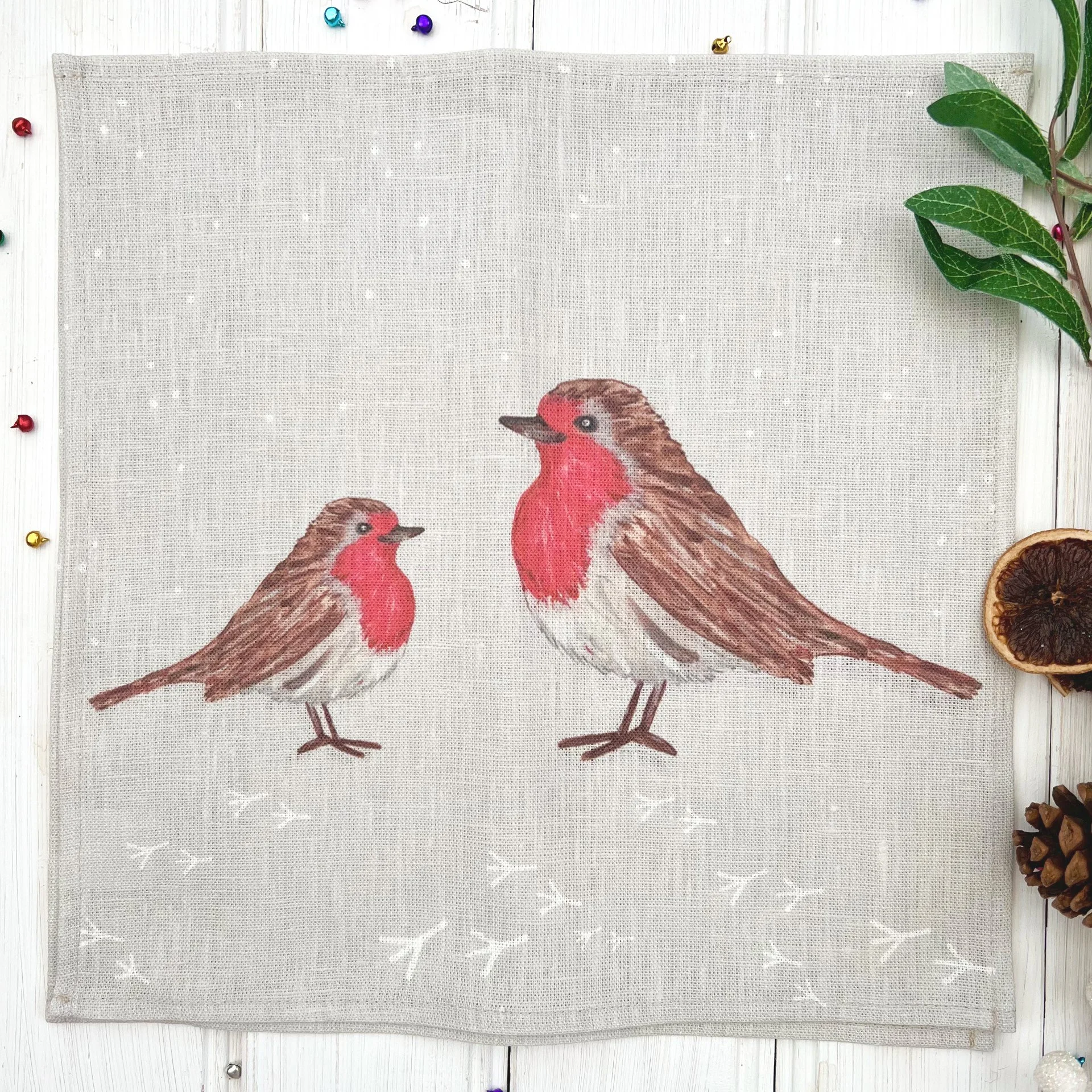

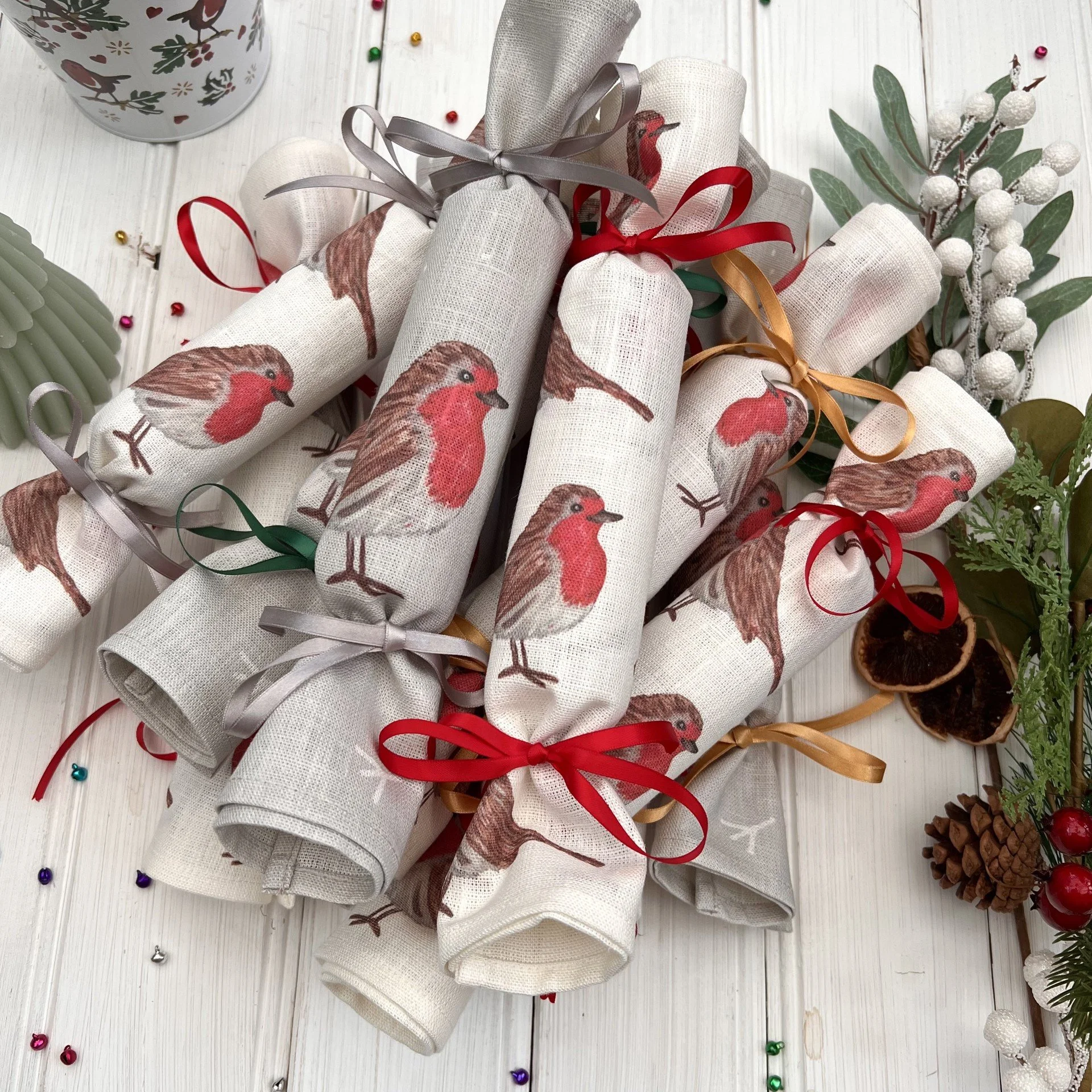
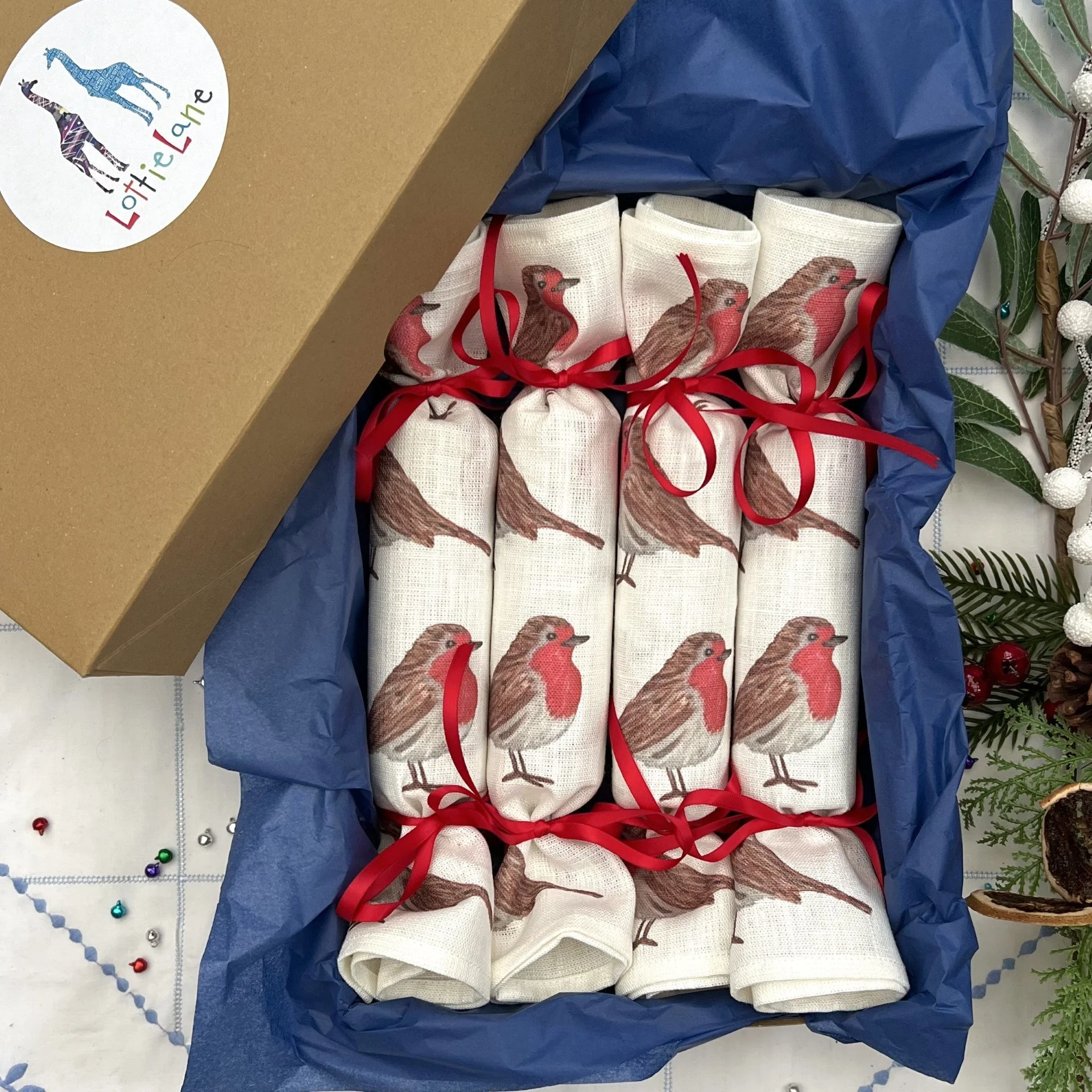
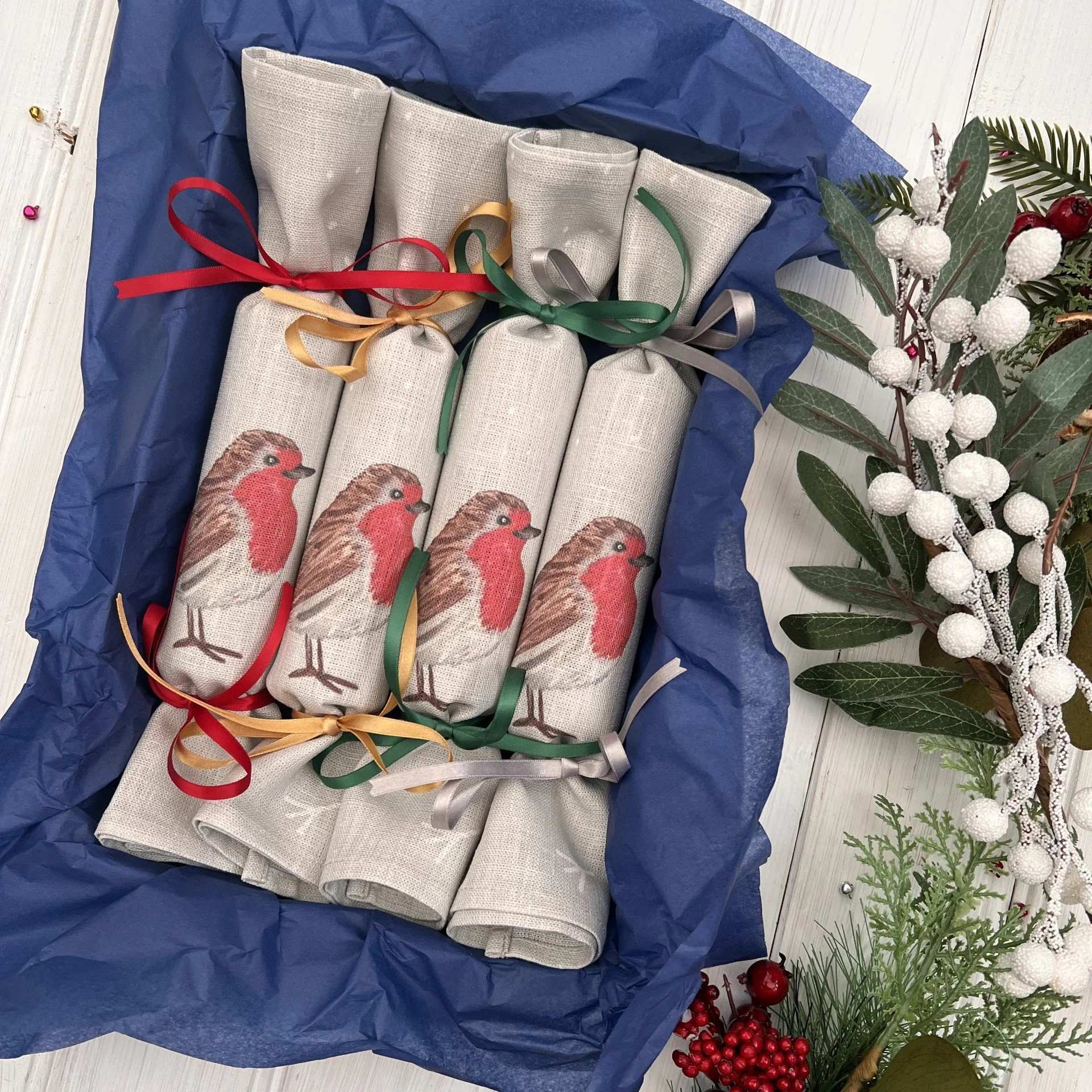

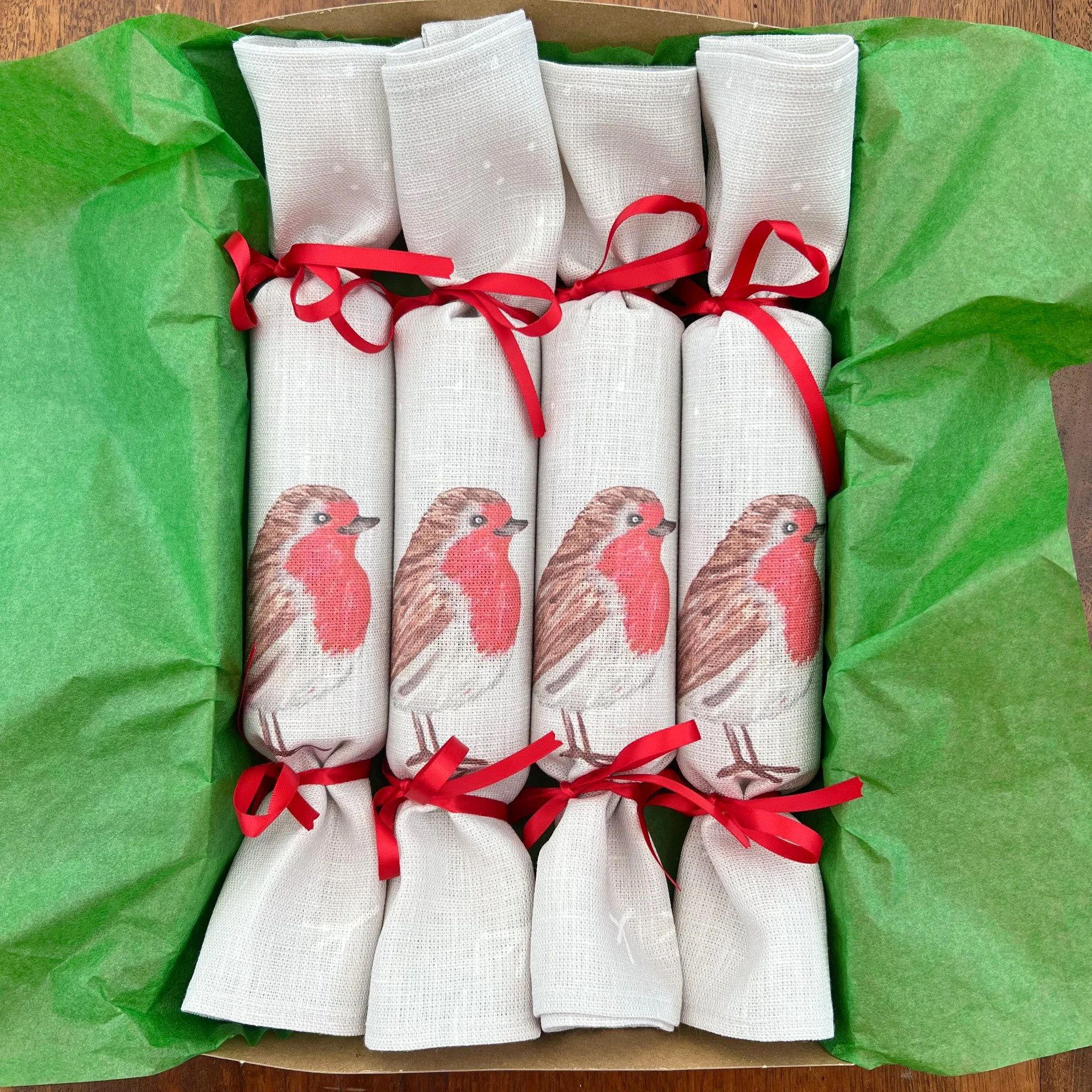
Christmas Robins Linen Napkin Crackers
Each year somewhere around 40 million Christmas crackers are thrown in the bin. Yes, FORTY MILLION, as well as single use paper napkins. So, join the cracker revolution and make your Christmas more sustainable this year with our re-usable, 100% linen napkin crackers featuring Lottie’s hand drawn delicate 'Christmas Robins' design. Once opened our crackers can also double up as stunning napkins for your Christmas dinner table. If dirty just pop them in the washing machine ready for next time. Not only are they sustainable but they are a really special addition to your Christmas table-scape that will be sure to wow your guests.
Each cracker comes with a recyclable paper crown and of course, a classic joke. We suggest filling your crackers with your own mini gifts and we love the idea of chocolates, cufflinks, a pair of earrings or a mini bottle of alcohol!
To fill: Untie the end of the cracker and fill with your chosen gifts and roll back up again. On Christmas Day: We know you'll miss the 'bang' as you pull your cracker, so we suggest shouting 'MERRY CHRISTMAS' as you all open your crackers together.
Dimensions: 33cm length
Variation:
Choose between gold, silver, red, green or blue satin ribbon ties.
Available in sets of two, four and six.
Gift wrapped in coloured tissue paper and a cardboard box for safe keeping until next year.
Made from:
Napkins: 100% linen, machine washable at max 40°C. Crackers made from one napkin plus a cardboard inner and satin ribbon ties.
At Lottie Lane we care about ensuring our environmental impact is as small as possible whilst creating lovely things. That’s why we love linen, and here’s why you should too...
The durability of linen means it lasts longer than other materials. Even when linen does reach the end of its life, it doesn’t need to rot in a landfill. As a natural fibre, it’s fully compostable.
Flax creates very little waste. Other parts of the plant, like the seeds, can be used to produce linseed oil or flax seeds for consumption.
Flax grows naturally and requires no additional water other than rainwater
Linen yarn is inherently strong, which reduces the need for starching during spinning and weaving.
Flax cultivation has positive effects on eco-system diversity as it allows for an “environmental pause”. One hectare of flax can retain 3.7 tonnes of CO2.
